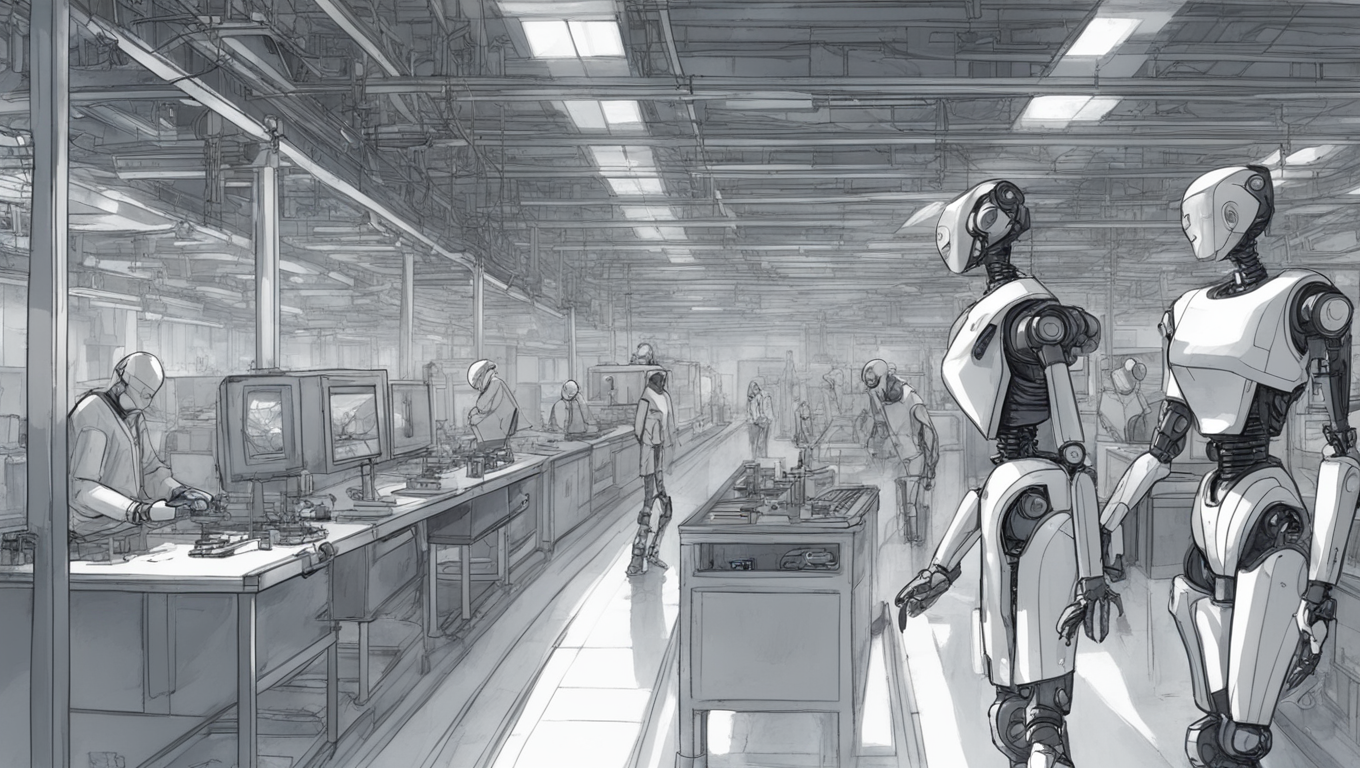A recent study commissioned by Google has shed light on the potential impact of artificial intelligence (AI) on Ireland’s labor market. According to the research conducted by Implement Consulting Group, AI has the potential to replace up to 150,000 jobs in Ireland within the next ten years. The report explains that generative AI will revolutionize work across various sectors, leading to the automation of positions such as data entry clerks, customer service representatives, and even some medical professionals.
While the study predicts that two-thirds of jobs will be augmented by AI, 28% of people won’t be exposed to automation. However, approximately 6% of workers, equivalent to 150,000 positions, may face more than 50% displacement due to AI and will need to find new employment opportunities. The report identifies specific sectors, particularly manufacturing, that will be significantly impacted by AI. The manufacturing sector is projected to experience an annual productivity growth rate of 1.2%, resulting in an increase in value-added amounting to approximately €15-16 billion.
Notably, other sectors such as information and finance, the public sector, business services and real estate, tourism, wholesale and retail trade, transport and storage, and construction also expect substantial productivity improvements due to AI adoption. However, the report emphasizes the need for workers to receive re-training and up-skilling to ensure they can adapt to the changing job market trends.
Vanessa Hartley, the head of Google Ireland, emphasizes the importance of responsible introduction of AI in Ireland, accompanied by support for workers transitioning into new roles. The Irish government is already aware of this need and is actively developing strategies to mitigate the potential negative effects. Minister for Enterprise Peter Burke states that while many current roles will be supported by AI, the Department of Finance is producing a report to stress test the labor market and identify areas at risk.
Several prominent figures, including Elon Musk, CEO of Tesla and SpaceX, Sachin Dev Duggal, founder of Builder.ai, and David Michael Solomon, CEO of Goldman Sachs, all agree on the importance of advancing technology and adapting to new technologies for job market relevance. While Musk believes AI will replace most jobs, Duggal sees job disruption as an opportunity to create new ones. Solomon notes that change and innovation are necessary for market competitiveness, suggesting the possibility of new job opportunities.
The release of the study has raised concerns about potential job losses and the adaptability of workers to the changing nature of work. However, it is important to recognize the significant economic benefits that AI can bring. The report suggests that AI has the potential to boost Ireland’s GDP by €45 billion over the next decade, highlighting its role in driving economic growth and stability.
To prepare for the changes AI will bring about, Ireland must invest in education and training programs while also supporting businesses in adjusting to the evolving job market. These proactive measures empower individuals to take charge of the situation and equip themselves with the necessary skills to thrive in an AI-driven economy. By embracing AI and its potential, Ireland can position itself to benefit from the economic opportunities it presents.





Use the share button below if you liked it.